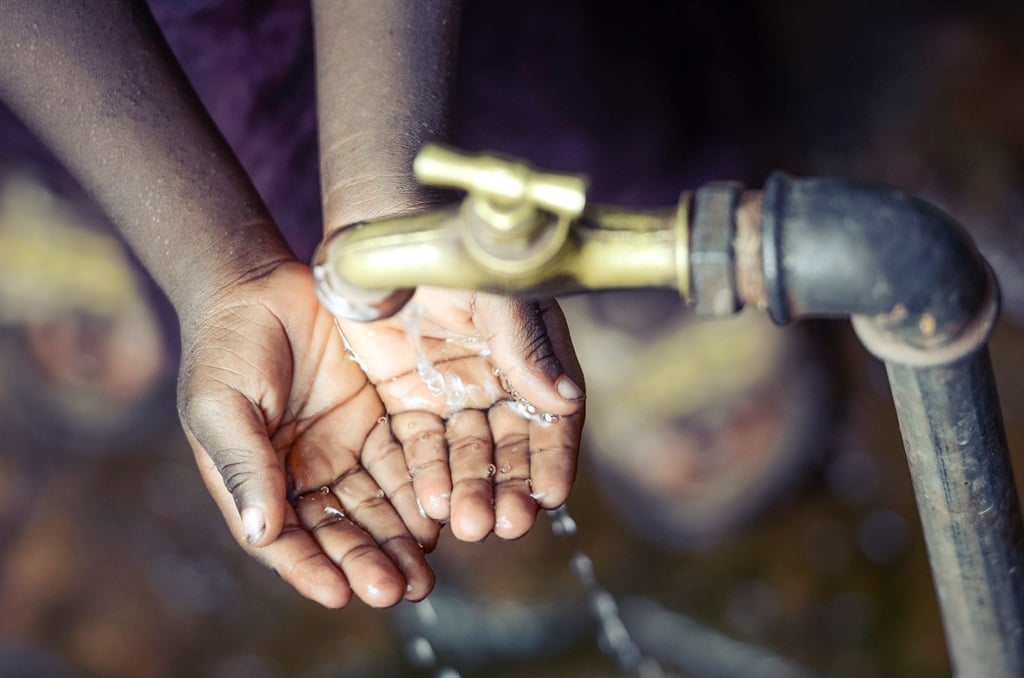
A study by the World Health Organisation has found unsafe drinking water, sanitation and hygiene practices were responsible for more than 7 000 deaths in children under the age of five in South Africa.
- A World Health Organisation study has found unsafe drinking water, sanitation and hygiene practices were responsible for more than 7 000 deaths in children under the age of five in South Africa.
- The study presents estimates of the disease burden attributable to unsafe drinking water, sanitation, and hygiene for 183 WHO member states for 2019.
- More than 500 000 deaths were attributed to unsafe drinking water, sanitation and hygiene in Africa and Southeast Asia.
A World Health Organisation (WHO) study has found unsafe drinking water, sanitation, and hygiene practices in South Africa were responsible for more than 7 000 deaths and more than 640 000 disability-adjusted life years (DALYs) in children under the age of five.
This was revealed in the study titled – Burden of disease attributable to unsafe drinking water, sanitation and hygiene: 2019 update.
The study presents estimates of the disease burden attributable to unsafe drinking water, sanitation, and hygiene for 183 WHO member states for 2019, disaggregated by region, age, and sex.
According to it, the estimates were based on four health outcomes – diarrhoea, acute respiratory infections, undernutrition, and soil-transmitted helminthiasis.
One DALY represented the loss of the equivalent of one year of full health, said the WHO.
It added the DALYs for a disease or health condition “are the sum of the years of life lost to due to premature mortality [YLLs] and the years lived with a disability [YLDs] due to prevalent cases of the disease or health condition in a population”.
More than three-quarters of all WASH-attributable deaths occurred in the African and Southeast Asia regions, while 89% of attributable deaths were recorded in low- and lower-middle income countries.
READ | Gauteng and Free State tap water safe to drink despite cholera outbreak, govt says
In the Africa and Southeast Asia regions, the WHO report recorded 510 000 and 593 000 deaths, respectively.
In contrast, 33 000 deaths attributed to WASH were recorded in the European region.
“Diarrhoeal disease accounted for most of the attributable burden with over one million deaths and 55 million DALYs.
“The second largest contributor was acute respiratory infections from inadequate hand hygiene, linked to 356 000 deaths and 17 million DALYs.
“There were 273 000 deaths from diarrhoea and 112 000 deaths from acute respiratory infections, which are said to be the top two infectious causes of death for children under five globally,” read the report.
According to it, 15 843 people died from diarrhoea and 39 583 from acute respiratory infections in South Africa.
Since a cholera outbreak in Hammanskraal, outside Tshwane, was confirmed in May, 32 people have died due to cholera-related illnesses.
The report’s accompanying data tool showed 23.1% of people in South Africa still used limited sanitation services.
It estimated 29.7% of people used basic sanitation services which were not connected to a sewer.
The data tool also estimated that just over half of South Africans had access to handwashing facilities with water and soap at 53.3%.
Alarmingly, it estimates 89.1% of people did not practice handwashing with soap after faecal contact such as toilet use.
The report read:
In 2019, safe WASH services could have prevented the loss of at least 1.4 million lives and 74 million DALYs. This represents 2.5% of all deaths and 2.9% of all DALYs globally. The impacts of unsafe WASH on health are wide-ranging and go beyond disease, affecting social and mental well-being. In addition, climate change is likely to exacerbate many WASH-related diseases and risks which are not fully captured in the present estimates.
The head of the WHO Water, Sanitation, Hygiene and Health Unit, Bruce Gordon, said it was clear inadequate access to safe water, sanitation, and hygiene services continued to pose a significant and preventable health risk, particularly to the most vulnerable populations.
“The health benefits, as quantified in the report, are immense.
“Prioritising those most in need is not just a moral imperative; it is key to addressing the disproportionate disease burden in low- and middle-income countries and among marginalised groups in high-income countries,” he added.